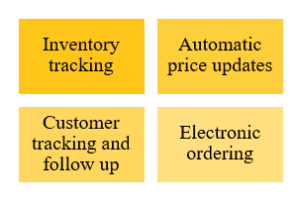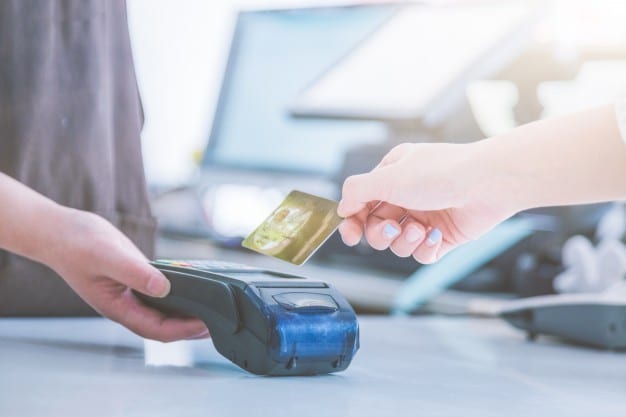FIVE MYTHS ABOUT POS APPLICATION – DEBUGGED!
POS terminal for a Brick & Mortar Business
POS applications are the new registers, real-time data store, secure platform, and much more for a brick and mortar business.
POS application/terminal is everything that a physical business requires for smooth transactions.
In simple words, a POS Machine/Terminal is a device that authenticates the customer by sending the cardholder’s details to the bank where his/her account is open.
It then receives the authentication status and, if the details are valid, it connects with the acquirer’s (merchant’s) bank to deposit the said amount of money in its account.
For a physical store/brick and mortar store, it is a boon since a POS machine performs several functions all at once.
All these functions/features of the POS machine make everyday functioning and storing data a lot easier.
Although a POS (Point of Sale) machine/terminal performs various functions, there are some very common misconceptions about the same, which are debugged here –
-
POS is only for billing
POS application usually comes with inventory management, account management, and several other features.
It successfully simplifies the daily business operations and manages comprehensive data in real-time. The fact is that there are many different types of POS terminals, and each carries its own strong features as well as benefits.
In short, about POS application terminals may track only accounting transactions and inventory, whereas others can be with advanced features for providing the merchant with many other benefits alongside.
Some inclusions in different POS (point of sale) terminals are interesting and vast like:

Several POS terminals also gather information with regard to sales about customers, analyze the same and present the merchant with the relevant data.
This data can be utilized to adjust/modify the products or offerings accordingly. Hence, such POS terminals are capable of doing market research; help generate reports about costs, sales, and profits of specific products, which increases the efficiency.
-
Critical nature of POS terminals in terms of operation and setup
In fact, many POS terminals are user-friendly and help the merchant with all the tasks without much hassle.
In not more than 15 minutes, any individual even with vague knowledge about computer systems and the like can successfully learn to operate a POS terminal.
Besides learning to operate as a beginner, the complete skill set can also be gained within the same time frame.
So About POS application, it helps to simplify the merchant’s business and does not lead to any hassles. Furthermore, it helps to bring the entire data together for the merchant to find it all in one place and base the day-to-day business decisions on the same.
-
Not as simple as looking up the cash register for records of old transactions
In case of this belief, one must understand that the complexity of storing registers (of which, the pages may turn soggy, old, and worn out) is more than the technicalities of a POS machine.
A POS machine is quite easy to operate and it is even easier to look up old records the same as it needs the user to only enter the commands.
To these commands, a POS machine quickly responds with the relevant information. Hence, everything is automated, quick, and does not require space for storing.
This way, it becomes a lot better than scanning through handwritten records, which may smudge (making it difficult to read), wears out over a period, or simply create difficulty with storing.
-
POS terminals are expensive and need high-speed internet
In actuality, POS terminals are not very expensive, and there are rather “free of cost” options available. In making a return on investments more efficient, POS machine plays an extremely crucial role.
It is also of utmost importance to note that a POS machine can run with or without the internet. Having both options’ availability makes it adaptable to all kinds of business environments.
In the case of a multi-outlet or a chain of business, the internet operates the same from the head office portal (cloud portal). This is supported via basic 2G or 3G internet speed on the basis of POS hardware configuration.
Even if the internet connection is lost in between an ongoing process, the data will not go anywhere.
The app automatically switches to offline mode and the entire data is saved in the device memory. Hence, on reconnecting the device to the internet, the entire data syncs and is updated with the cloud.
-
POS terminals are generic and all are almost the same
There being multiple varieties of POS terminals, industry-specific systems exist. This implies that the POS machine specific to the day-to-day major operations can be utilized by every industry.
It makes it more feasible for the specific outlet to carry out its operations more efficiently.
There are several other aspects of POS terminals that can be understood and for that, it will be helpful to not base the traits/characteristics of the same on the certain generic criteria.
In order to opt for the correct POS system, every merchant needs to understand the type that fits its needs based on everyday operations.
This is an extremely important point to note that the right POS system will provide the merchant with a customizable, robust, and flexible arrangement to help the business progress.



